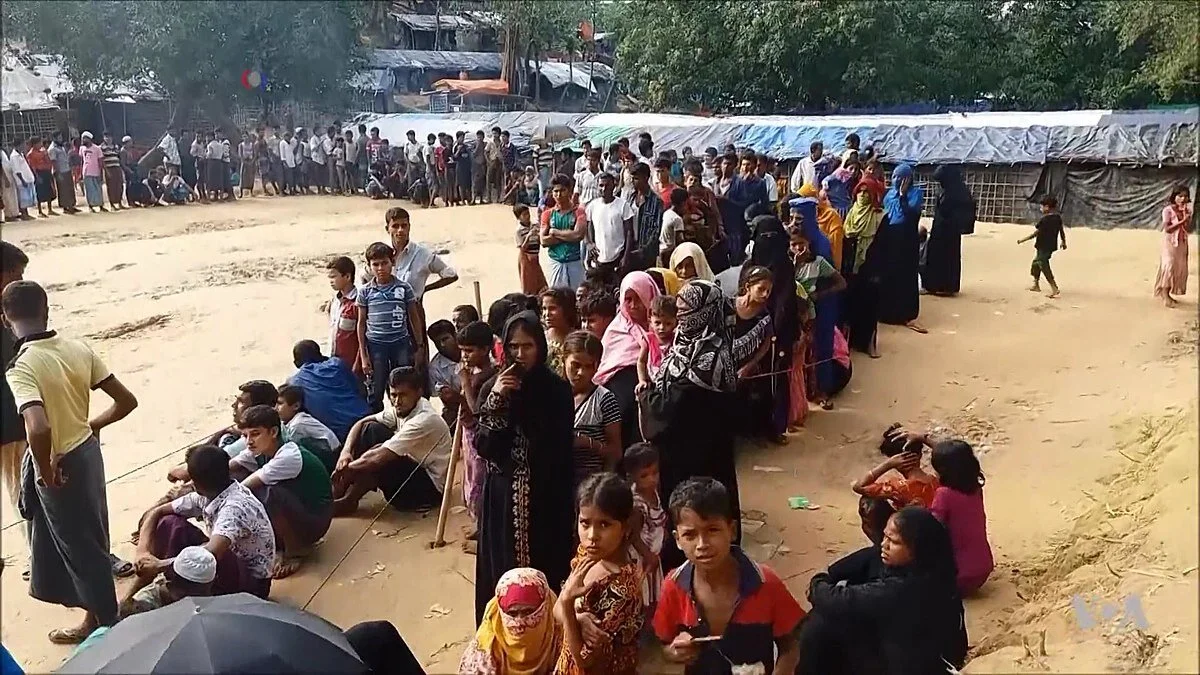The Gambia Accuses Myanmar of Genocide
The Gambia accused Myanmar of ethnic cleansing and genocide against the Rohingya on November 11. (Wikimedia Commons)
The Gambia announced on November 11 that it had charged Myanmar with committing genocide against its Rohingya Muslim minority in a case at the International Court of Justice (ICJ). Since 2017, Myanmar’s military has cracked down harshly on the country’s Rohingya ethnic minority, drawing fierce international criticism. The Gambia, a majority Muslim country, won support from the Organization for Islamic Corporation (OIC), an international organization composed of 53 Muslim-majority states, to move forward with its case.
“The aim is to get Myanmar to account for its action against its own people: the Rohingya,” said Gambian Justice Minister Abubacarr Tambadou in a conference at the Hague to Reuters. “It is a shame for our generation that we do nothing while genocide is unfolding right under our own eyes.”
In 2017, Myanmar’s military entered the northern Rakhine province, the native province of the majority of Rohingya in Myanmar, and began attacking civilians and burning villages. Myanmar has a long history of discrimination against the Rohingya, including denying them citizenship and denying their Myanma ethnic heritage. Since then, hundreds of thousands of Rohingya have fled Myanmar as refugees mainly towards neighboring Bangladesh, where they are confined to some of the world’s biggest refugee camps. The United Nations has called it a “textbook example of ethnic cleansing,” despite official government denials of Rohingya persecution.
Despite international outcry, international legal bodies have issued no formal ruling against the actions of Myanmar’s security forces. At the ICJ, only countries can bring a case against another country. The Gambia has asked for the court to formally condemn Myanmar for violating the terms of the 1948 Genocide Convention. Both the Gambia and Myanmar are signatories to the Convention, which prohibits states from committing genocide and compels others to take action against states that are doing so.
“It is clear that Myanmar has no intention of ending these genocidal acts and continues to pursue the destruction of the group within its territory,” the Gambian lawsuit read. The Gambia has also requested a temporary injunction from the court, demanding that Myanmar security forces cease their activities in the affected regions until the ICJ case is formally resolved. Paul Reichler, the Gambia’s lead lawyer, is optimistic about the chances for an injunction, saying, “We are confident that genocide has been committed in this case, and we are very confident in the fairness of the court.”
Although the ICJ resolves disputes between states, it rarely handles genocide. Rather, it typically adjudicates disagreements over international agreements or borders. While there is precedent to bring a case based on the Genocide Convention as the court found Serbia responsible for the attempted extermination of the Bosniak community in 2007, the Gambian case is unprecedented as neither party is officially at war with the other, reports the New York Times. While the International Criminal Court (ICC) adjudicates crimes against humanity, Myanmar has not signed onto the treaty granting the ICC jurisdiction.
Until now, Myanmar’s only defense has been to deny that its security forces are engaging in ethnic cleansing. John Packer, professor of law at the University of Ottawa, told the New York Times that “Myanmar’s simple denials will not stand up to scrutiny.’’
Although an ICJ ruling cannot compel compliance with the Genocide Convention, human rights groups have still shown support for the Gambia’s case. “Gambia has found a way to turn the international community’s hand-wringing over the Rohingya into action,” said Param-Preet Singh of Human Rights Watch, according to Reuters.
Foley Hoag, a law firm assisting the Gambia, said that it expects hearings on this case to begin in December in the Hague.

